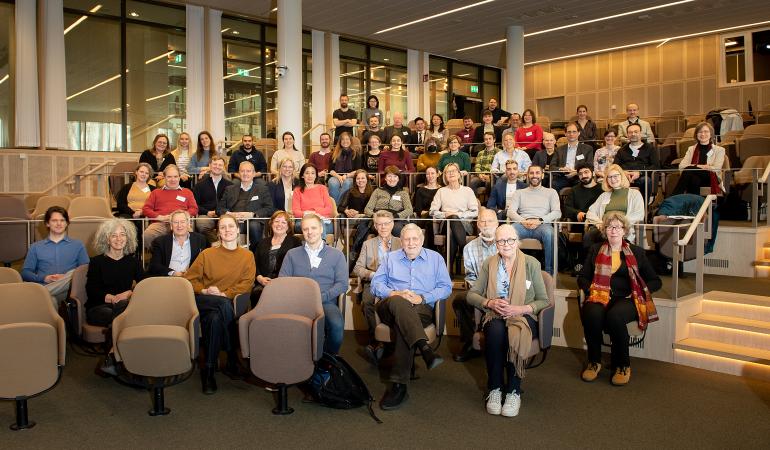
Doing research together with more than 100 members in a project, working at 22 partner institutes and from 11 different European countries, is a challenge. Not to mention all the different backgrounds of the researchers – academic and cultural – and the various stakeholders engaging in the process. The Equal-Life project is truly interdisciplinary, bringing together various areas of knowledge and expertise related to the exposome – such as mental health, geography, physics and biology, as well as social sciences and epidemiological and statistical knowledge – together generating insights to improve children’s mental health.
The complexities inherent to working in such interdisciplinary teams make it essential, as well as required by the European Commission for Horizon2020 projects, for the consortium to annually get together to discuss the progress of the work. On April 3-5, 2023, the consortium was warmly welcomed by one of its partners at the Karolinska Institutet in Stockholm, Sweden, to do so. After the 2022 hybrid meeting in Ljubljana and the online meeting in 2021, it was great news for the Equal-Life researchers to be able to meet in person again.
The 3-day program included presentations by colleagues on results centred around specific themes, related to certain outcomes and/or exposures, as well as stakeholder involvement and work-in-progress from the various Work Packages and teams. Sessions varied from PhD students and researchers pitching their work, to thematic breakout sessions about e.g. ‘How to tackle integrating the wide variety of exposures that together form children’s exposome’, and a break-out working session on stakeholder involvement.
New insights from keynotes
Inspiration from outside the consortium team was provided by two keynote lectures. Dr. Aaron Reuben from Duke University & the Medical University of South Carolina presented a wealth of knowledge on the ‘General Psychopathology factor’, or in short: ‘p factor’. The p factor is an important outcome measure for the Equal-Life project. In a nutshell, the p factor is a factor that represents an individual’s susceptibility to experience and develop mental health disorders: the higher a child or adult scores on this so-called “p”, the higher the chance that this person will experience or develop psychiatric symptoms. More on Aaron Reuben’s work can be found on his website.
As the second keynote speaker, geographer and publishing author Josse de Voogd demonstrated how geographical maps can be used to tell a story by showcasing different layers of information provided by certain geographical borders; think of regions, cities, neighbourhoods, and more. For example, by comparing maps of voting behaviour in certain neighbourhoods with maps on income in these same neighbourhoods, differences in education and perceived health, as well as patterns of social, economic, and health inequalities become apparent. Moreover, Josse showed that maps like these provide insight into geographical patterns of behaviour and health, but that they can be interpreted in many ways. This challenges Equal-Life’s researchers to reflect on their (geographical) results and the corresponding output. More on Josse de Voogd’s work can be found on his website.
Annual meetup for formal affairs...
The formal part of the annual consortium meeting includes the General Assembly meeting, where important inputs are provided to round up the 3 day event by the External Advisory Committee (EAC), the External Ethics Board (EEB) and the European Commission project officer. Their overall reflection was that the work is on track and the key focus should be on the integration the findings. This is followed by the Executive Committee (ExCo) in which decisions are made (prepared in the General Assembly meeting) , amendments discussed and the process is evaluated by members of the EAC.
... and 'fikas'
Of course, it was also important to digest all the acquired foods for thoughts. A guided tour through the historic city centre of Stockholm and a subsequent dinner in authentic Viking style, arranged by the hosting Swedish partner, provided time for fun and strengthening collegial ties. In addition, mutual exchange was encouraged in several joint 'fikas' – Swedish-style coffee breaks. Looking back at three productive and inspiring days, our consortium feels re-energized to work together on generating insights to improve children’s lives.
Sammie Jansen & Kim van Wijk